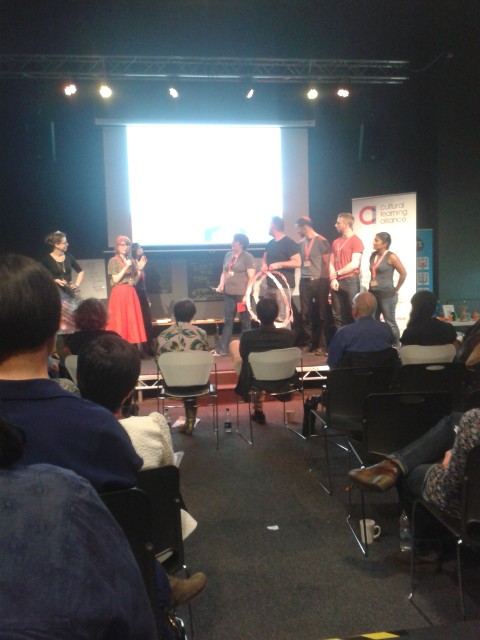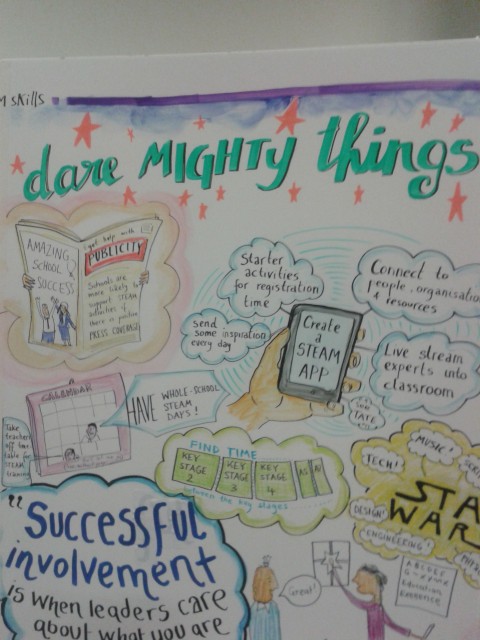With slightly ruffled hair, bleary eyes and a stomach most probably full with coffee, a group of 40 teachers, artists and scientists presented their musings on how to incorporate art into the STEM subjects today.
Some of the brightest minds from among the science, technology, engineering and maths (STEM) industry had spent 24 hours locked in a lecture theatre-style room on the third floor of London’s Science Museum from 12-noon yesterday at the STEAM Hack event.
It is part of a campaign to give art an equal status with science and ensure school leavers have the creativity and innovation craved by workplace employers.

Participants fought off their fatigue after the brainstorming all-nighter – which included a chat with scientists at NASA – to present their ideas to a guest panel.
Popular ideas included creating a web bank of “STEAM starters” – five minute activities for teachers to use at the start of class to get pupils immediately engaged and thinking across the subjects.
In science, pupils could draw what a penguin would look like if dolphins were removed from the food chain, or what polar bears may look like if adapting to global warming.
Another idea was to give pupils their own discovery journal that could be used to jot down cross-curricular ideas or meld activities from different subjects.
Maggie Atkinson, former children’s commissioner for England and one of the panel members, said: “We have to create in our children the ability to be hugely curious – that’s what education is for and that’s what we are doing here.”
But the former English and drama teacher said it will take brave schools to implement some of the innovative ideas – saying they will have to show Ofsted what they do and why they are doing it.
The event was run by the Cultural Learning Alliance (CLA) which works to ensure young people have access to culture.
Sally Bacon, from the CLA, said: “We propose that science and arts should have equal status in schools and that teachers from both disciplines should be able and inspired to collaborate.

“To advocate to government and help teachers we need tangible examples of brilliant STEAM in action.”
The STEAM agenda was created by the Rhode Island School of Design, in America, to “foster the true innovation that comes with combining the mind of a scientist with an artist”.
Delegates from the arts and design college joined with representatives from NASA in a video conference with the STEAM Hack teams to talk through ideas last night.
These ideas need a national platform now
Ms Atkinson added: “These ideas need a national platform now, you need to think about how you push it to Nicky Morgan and Nick Gibb.”
It seems the hard work starts now (after they’ve caught up on their sleep, of course).
Next steps from @CultureLearning's #STEAMskills #STEAMhack: bring together our ideas, work out how to create a culture of #STEAM in the UK!
— Carole Kenrick (@HelpfulScience) October 29, 2015








Your thoughts